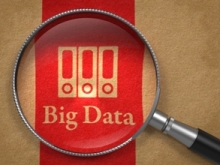Personalized Marketing has become an important marketing strategy for organizations. As per a recent survey, 86% of consumers say that personalization plays a major role in their purchase decisions. 94% of the marketers agree that personalization is important for meeting their current marketing objectives.
But what is holding the marketers back? Legacy technology which is not suited for the digital transformation era, a CRM only approach which provides an incomplete view of individual customers, not having the right resources are some of the challenges faced by the marketers.
A robust data management platform (DMP), which pulls data from disparate first, second, and third party data sources and allows organizations to define specific audience segments to which they can provide distinct marketing experiences, is the key to overcome such challenges. Here are few reasons why DMP has become a must have technology for marketers:
- It helps in collecting data from various sources
The customer data collected by the organization which is stored in CRM systems is often not enough to get a complete view of an individual customer.
Second party data such as past purchases, credit card usage, travel information etc. can be provided by the organization’s partners.
Third party data like job details, household income, lifestyle details etc. can be obtained from Data providers like Bizo, Exelate or Acxiom.
Along with CRM data, DMP can ingest second party and third party data to gain a complete 360 degree view of the customer.
- It helps in merging data fragments and link them to individual customer profile
Nowadays organizations possess a huge quantity of data. However, the main challenge is that the Big data is stored in different systems or databases. This results in the creation of multiple sets of audience data which are not linked to each other. Each of these systems has their own channel for reaching the audiences. Each channel sends out different communication to the customers leading to a disjointed user experience.
DMPs look for common attributes like customer ID or anonymized IDs in different data sources and link them to single customer profile. Hence, DMPs aid in providing a uniform user experience across channels.
- It helps you in identifying high value audience segments
Targeting high value audience segment has more chances of achieving higher conversion rates. Hence, identifying such segments is crucial for marketers to achieve their conversion goals.
DMPs are capable of identifying high value audience segments on the basis of purchase history, shopping patterns, credit card usage, the point of sales data, house hold income, job details etc.
- It helps in sending audience segment data directly to demand side platforms
Audience segment data plays a crucial role in programmatic ad buying. Demand- side platforms (DSPs) need relevant audience data in order to bid the right amount for ad impressions on Publisher’s website.
DMPs can communicate directly with DSPs. DMPs can provide information regarding which audience segments are performing better to the DSPs.
- It provides audience segment performance report
If targeting a specific segment of the audience is not yielding minimum rate of conversion then it leads to wasted ad spend. Hence, it is very important to find out which audience segments are not performing well.
DMPs provide reports showing the performance of each audience segment. Using these reports marketers can alter their campaign strategies by focusing more on high performing segments.
Audience segments play an important role in the marketing and advertising eco systems. For driving conversion, targeting the right audience at the right time is very crucial. DMP can hence be called as the heart of the marketing hub in this exciting era of digital transformation.
Sneha is a former Happiest Mind and this content was created and published during her tenure.








